
The Timeless Charm of Mahabouddha Temple in Patan, Nepal
Mahabouddha Temple, nestled in the heart of Patan, is a hidden gem that offers a glimpse into Nepal's rich cultural and architectural heritage. This temple, also known as the 'Temple of a Thousand Buddhas,' is renowned for its intricate terracotta art and detailed craftsmanship. Constructed in the 14th century, the temple stands as a testament to the skill and dedication of ancient artisans. Each brick of the temple is meticulously carved with images of Buddha, making it a unique and mesmerizing sight. As you wander through the narrow lanes leading to Mahabouddha, you'll be transported back in time. The surrounding neighborhood is a bustling maze of traditional Newari houses, artisan shops, and local eateries. The air is filled with the aroma of incense and the sounds of everyday life, providing an authentic experience of Patan's vibrant community. The temple itself is a serene oasis amidst the hustle, offering a peaceful retreat for contemplation and admiration of its beauty. Nearby attractions include the Patan Durbar Square, another UNESCO World Heritage site, which is just a short walk away. Exploring Mahabouddha Temple and its surroundings will not only enrich your understanding of Nepalese culture but also leave you with unforgettable memories of this timeless and enchanting place.
Local tips in Mahabouddha Temple
- Visit early in the morning to avoid the crowds and experience the temple's serene atmosphere.
- Wear comfortable shoes as the narrow lanes and uneven paths can be challenging to navigate.
- Respect local customs by dressing modestly and removing your shoes before entering the temple.
- Combine your visit with a trip to Patan Durbar Square to make the most of your time in this historic area.
- Take a local guide to gain deeper insights into the history and significance of the temple.
The Timeless Charm of Mahabouddha Temple in Patan, Nepal
Mahabouddha Temple, nestled in the heart of Patan, is a hidden gem that offers a glimpse into Nepal's rich cultural and architectural heritage. This temple, also known as the 'Temple of a Thousand Buddhas,' is renowned for its intricate terracotta art and detailed craftsmanship. Constructed in the 14th century, the temple stands as a testament to the skill and dedication of ancient artisans. Each brick of the temple is meticulously carved with images of Buddha, making it a unique and mesmerizing sight. As you wander through the narrow lanes leading to Mahabouddha, you'll be transported back in time. The surrounding neighborhood is a bustling maze of traditional Newari houses, artisan shops, and local eateries. The air is filled with the aroma of incense and the sounds of everyday life, providing an authentic experience of Patan's vibrant community. The temple itself is a serene oasis amidst the hustle, offering a peaceful retreat for contemplation and admiration of its beauty. Nearby attractions include the Patan Durbar Square, another UNESCO World Heritage site, which is just a short walk away. Exploring Mahabouddha Temple and its surroundings will not only enrich your understanding of Nepalese culture but also leave you with unforgettable memories of this timeless and enchanting place.
Iconic landmarks you can’t miss
Patan Darbar Square
Explore the enchanting Patan Darbar Square, a UNESCO World Heritage Site showcasing exquisite architecture and rich cultural heritage in Lalitpur, Nepal.
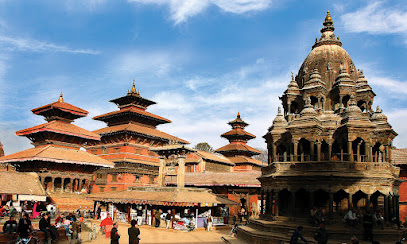
Oku Bahal Rudra Varna Mahavihar
Explore the serene beauty and rich history of Oku Bahal Rudra Varna Mahavihar, a stunning Buddhist temple in Lalitpur, Nepal.
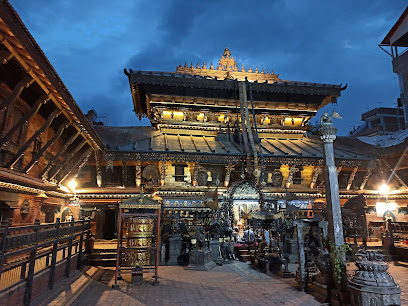
Kumbheshwor Temple(Patan)
Explore the sacred Kumbheshwor Temple in Patan, a stunning showcase of Hindu architecture and vibrant rituals, reflecting Nepal's rich cultural heritage.
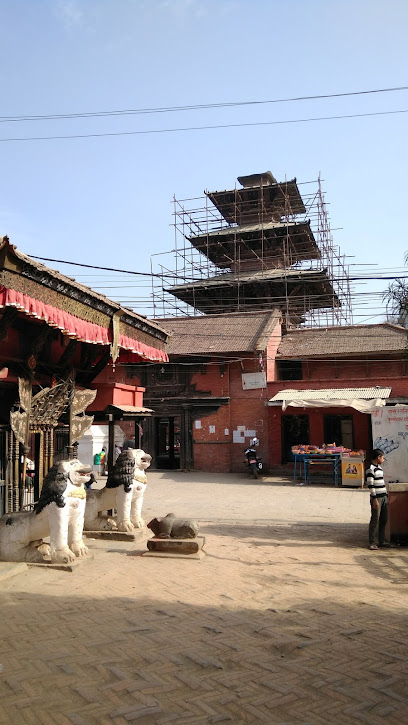
Mahabodhi Temple
Discover the serene beauty and spiritual significance of Mahabodhi Temple, a UNESCO World Heritage Site in Lalitpur, Nepal, where history and tranquility meet.
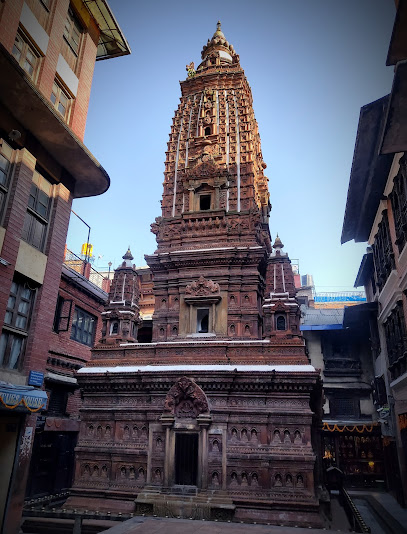
Rato Machchhindranath Temple
Experience the vibrant culture and spiritual heritage of Lalitpur at the Rato Machchhindranath Temple, a stunning Buddhist site filled with tradition.
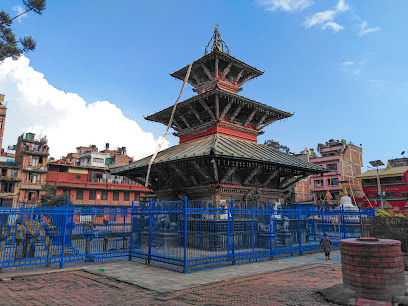
Mahabouddha Stupa
Discover Mahabouddha Stupa, a stunning Buddhist temple in Kathmandu, showcasing exquisite architecture and serene ambiance for spiritual seekers.
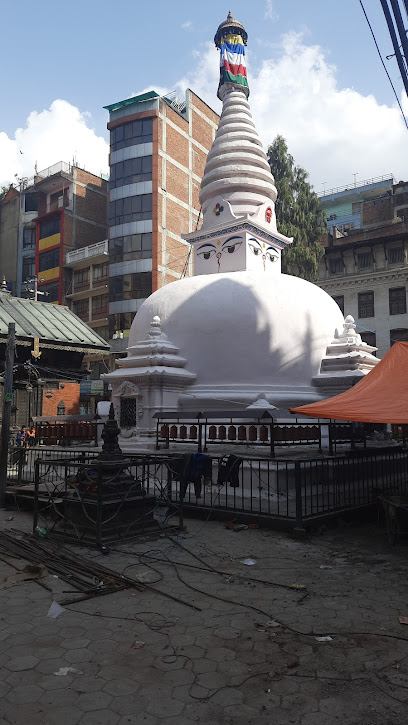
Bhimsen Mandir
Explore the breathtaking Bhimsen Mandir in Lalitpur, a unique three-story Hindu temple showcasing intricate architecture and rich cultural heritage.
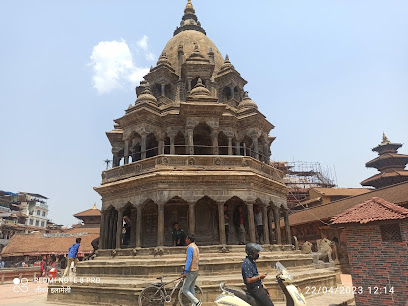
MAHABUDDHA GUEST HOUSE
Experience authentic Nepalese hospitality at Mahabuddha Guest House, a serene retreat in Lalitpur, ideal for exploring local culture and heritage.
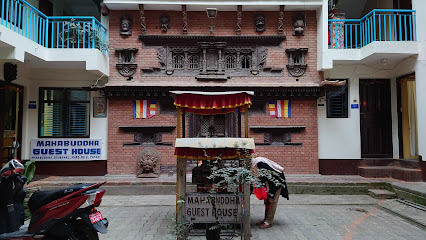
Hakhaa: Buddha
Discover tranquility and spiritual heritage at Hakhaa: Buddha, a captivating Buddhist temple in Lalitpur, Nepal.
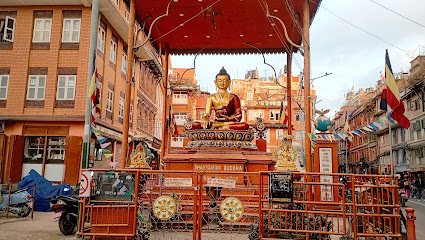
BhinchheBahal भिन्छेबहाल
Experience the tranquility and spiritual richness of BhinchheBahal, a hidden Buddhist temple gem in Lalitpur, Nepal.
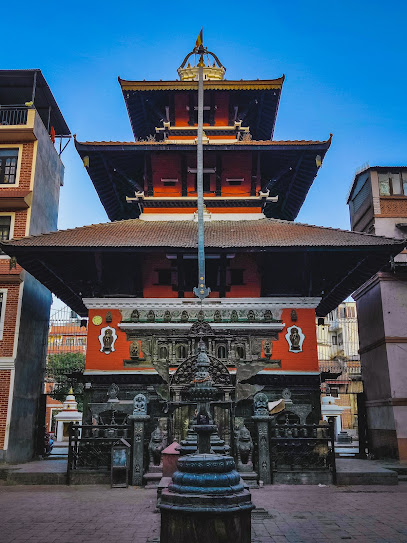
Unmissable attractions to see
Mahabodhi Temple
Explore the majestic Mahabodhi Temple in Lalitpur, a serene fusion of Buddhist and Hindu spirituality, rich in history and architectural beauty.
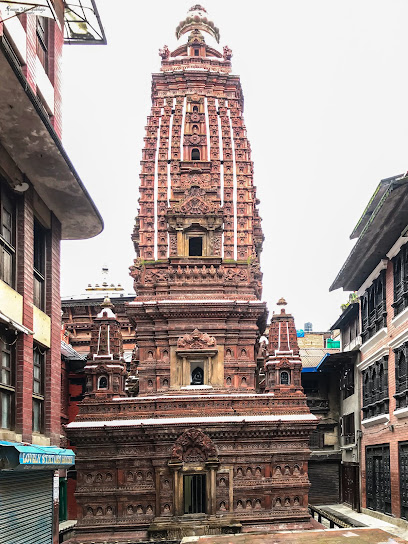
Manda Phalcha
Explore the serene beauty and cultural heritage of Manda Phalcha, a hidden gem in Lalitpur, Nepal, perfect for tranquil exploration.
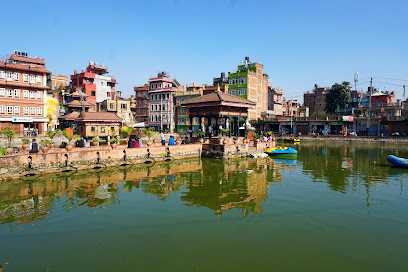
Essential places to dine
Cafe De Patan
Experience authentic Newari and Nepali cuisine at Cafe De Patan in Lalitpur – where tradition meets flavor.

Drishya Restaurant
Discover authentic Nepali flavors at Drishya Restaurant in Lalitpur - where tradition meets taste.
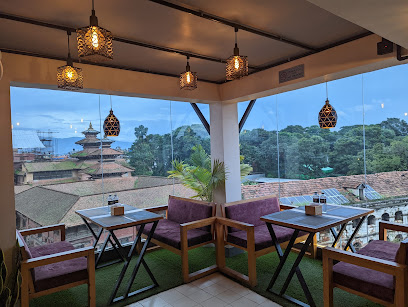
Cafe Du Temple Lalitpur
Discover delightful flavors at Café Du Temple in Lalitpur—your go-to spot for delicious food and warm ambiance.
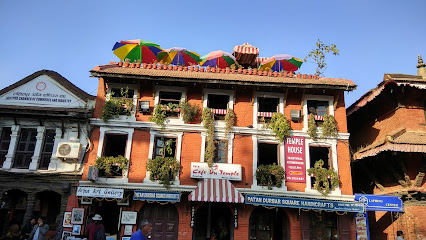
Casa Pagoda
Experience authentic Nepali cuisine at Casa Pagoda in Lalitpur's Mangal Bazaar – where tradition meets taste.
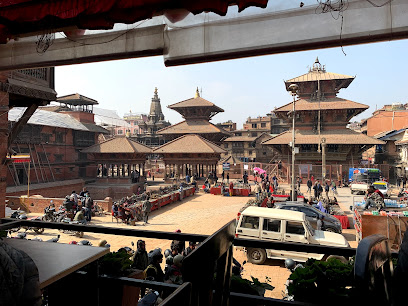
Mo:Mo King Rooftop
Discover the vibrant flavors of Nepal at Mo:Mo King Rooftop - your ultimate destination for authentic momos in Lalitpur.
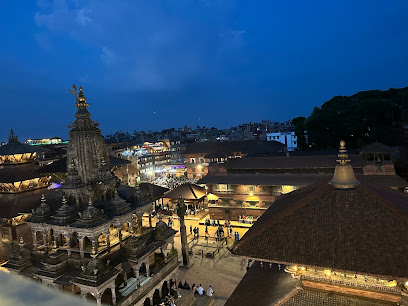
Durbar Cafe
Experience the essence of Nepalese cuisine at Durbar Cafe in Lalitpur – where every dish tells a story.
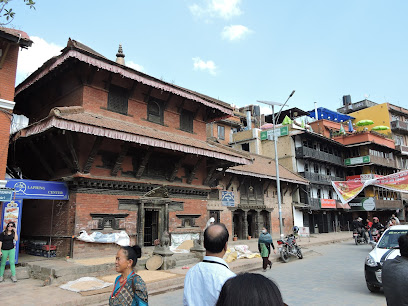
FLAMES CAFE & RESTAURANT
Discover the exquisite flavors of Nepal at Flames Cafe & Restaurant in Lalitpur - where tradition meets modern culinary artistry.
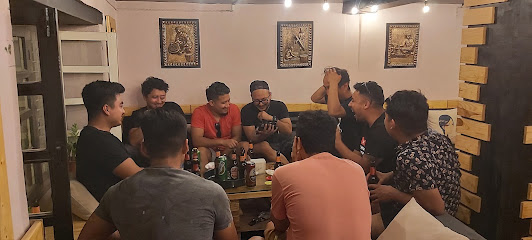
Cafe Swotha
Discover the authentic flavors of Nepal at Café Swotha in Lalitpur – where every meal tells a story.
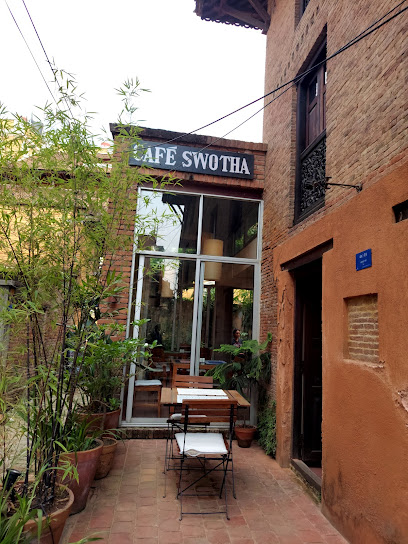
Kanibahal
Experience authentic Asian flavors at Kanibahal in Lalitpur – a culinary gem offering delightful dishes and warm hospitality.

Nuga cafe
Discover Nuga Cafe in Lalitpur: A charming restaurant offering authentic Nepali cuisine in a serene setting perfect for relaxation.
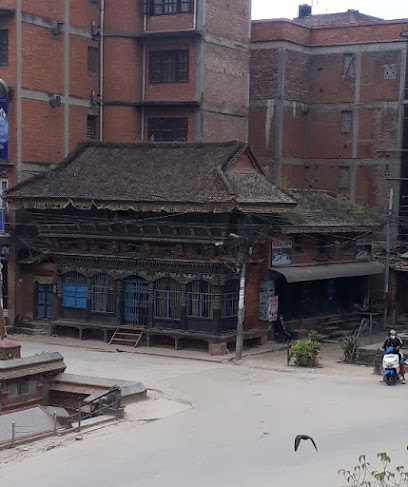
Markets, malls and hidden boutiques
The Khukuri House (KHHI nepal)
Explore the artistry of traditional Nepali knives at The Khukuri House, where craftsmanship meets culture in Lalitpur.

Dhukuti
Discover the vibrant shopping experience at Dhukuti in Lalitpur, where local crafts meet modern retail in a cultural haven.
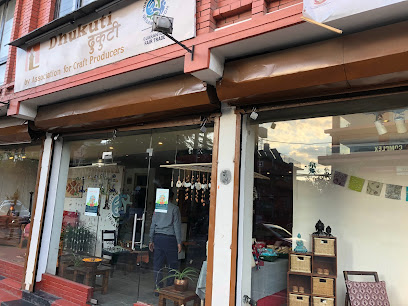
Mahaguthi Craft with Conscience
Explore Mahaguthi Craft with Conscience for authentic Nepali handicrafts and support local artisans while experiencing the rich culture of Lalitpur.
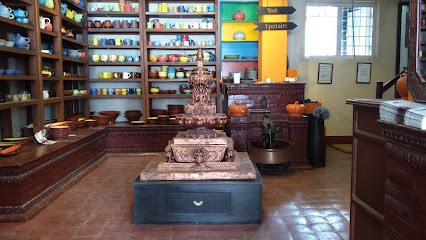
Om Handicrafts
Explore Om Handicrafts in Lalitpur, where authentic Nepalese artistry meets a vibrant shopping experience in a unique handicraft museum.

Unique shop
Discover unique fashion pieces that blend traditional craftsmanship with modern styles at Kathmandu's Unique Shop, a must-visit for every traveler.
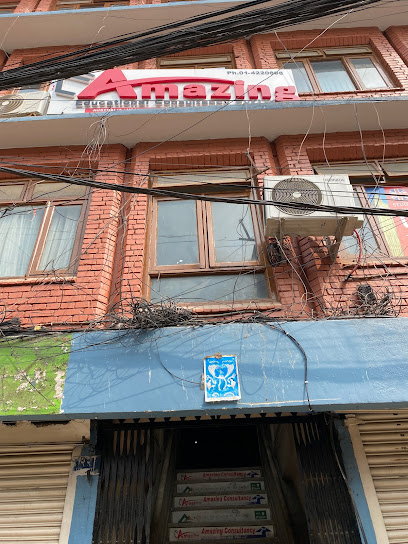
Patan Museum Gift Shop
Explore the Patan Museum Gift Shop for unique Nepali handicrafts, a perfect blend of culture and creativity in the heart of Lalitpur.
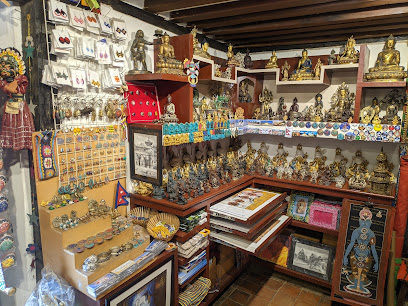
Diamond Handicraft
Explore Diamond Handicraft, a gem in Lalitpur offering unique handcrafted gifts, antiques, and art that celebrate Nepal's rich cultural heritage.

MAHAPAL GIFT SHOP
Discover the essence of Nepal at Mahapal Gift Shop, where unique handcrafted treasures await every traveler exploring Lalitpur.

Gautam Gift Emporium
Explore the artistic charm of Gautam Gift Emporium, a unique gift shop and handicraft museum near the Golden Temple in Lalitpur, Nepal.
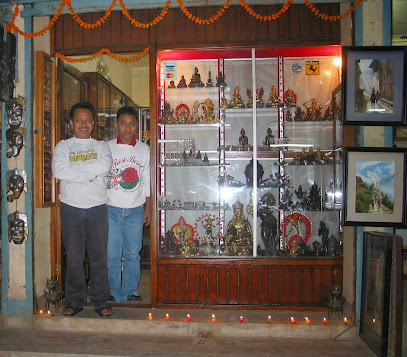
Khada Devi Stone Handicraft Workshop
Explore the rich traditions of stone craftsmanship at Khada Devi Stone Handicraft Workshop, a cultural gem in Lalitpur, Nepal.
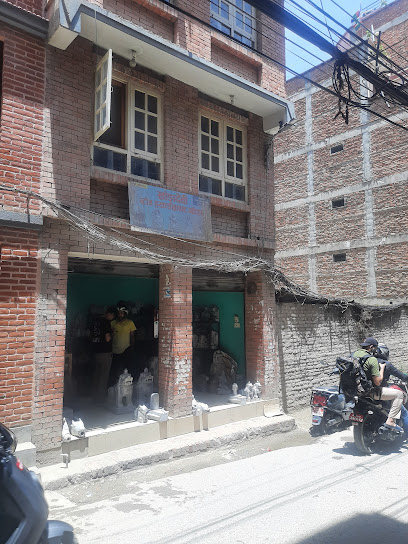
Essential bars & hidden hideouts
TITOS PUB N LOUNGE
Discover Titos Pub N Lounge, a lively pub in Lalitpur featuring live music, karaoke, and a delightful menu in a vibrant atmosphere.
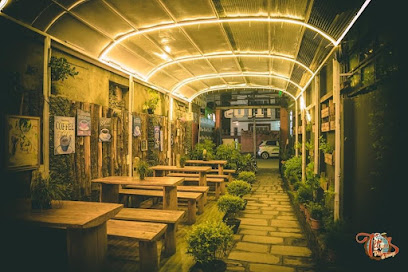
Bunker Hill Pub
Experience the vibrant atmosphere and local flavors at Bunker Hill Pub in Lalitpur, a must-visit destination for every traveler.
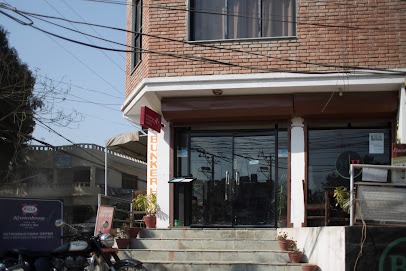
Nepal Micropub Jhamsikhel
Discover the lively charm of Nepal Micropub Jhamsikhel, where local flavors meet a vibrant nightlife in the heart of Lalitpur.
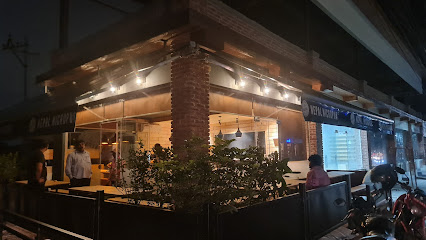
Vibes Restro And Lounge
Experience the vibrant culture of Lalitpur at Vibes Restro And Lounge, where delicious food and live music meet in a relaxed atmosphere.
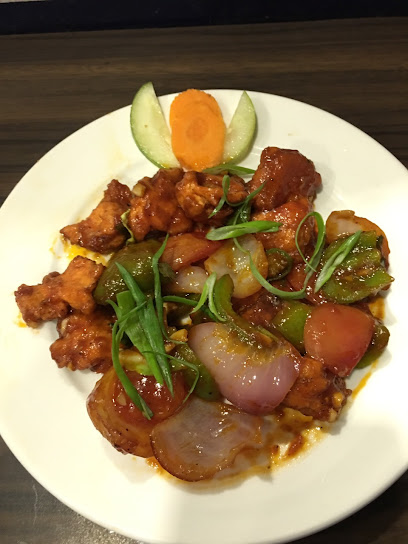
.
Experience the vibrant bar culture of Lalitpur, where great drinks and a lively atmosphere await every visitor.
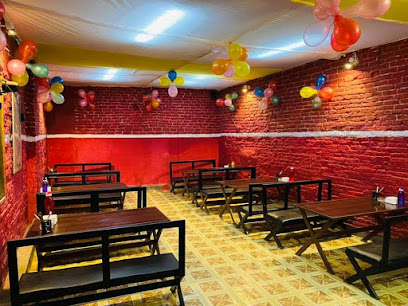
PetPooja Restro & Bar
Discover the vibrant ambiance and refreshing drinks at PetPooja Restro & Bar in Lalitpur, the perfect retreat for tourists seeking relaxation and local flavor.
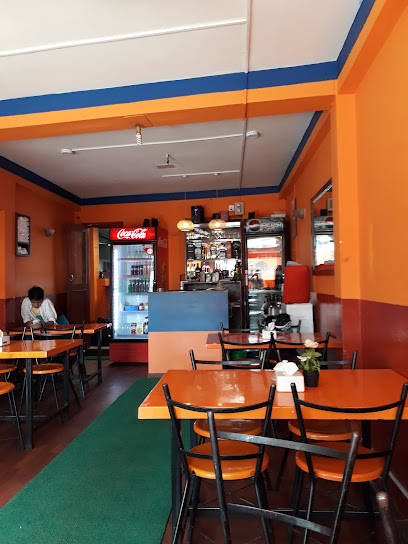
All Night Rangin Dance Bar
Dive into Lalitpur's nightlife at All Night Rangin Dance Bar, where eclectic beats and vibrant energy create the ultimate party atmosphere.
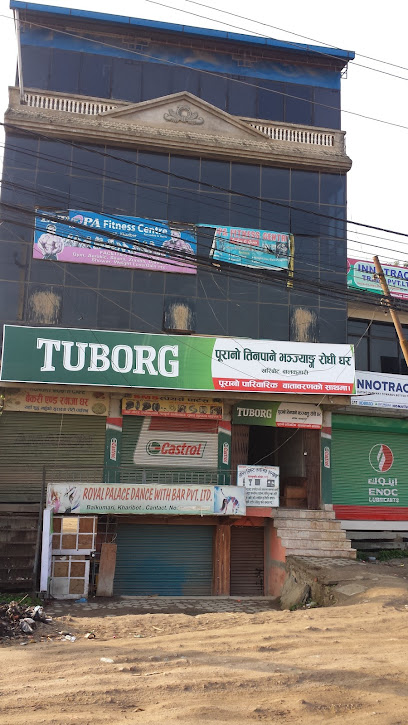
Bar Bar
Experience the vibrant nightlife at Bar Bar in Lalitpur, a perfect spot for drinks and socializing with friends after a day of exploration.
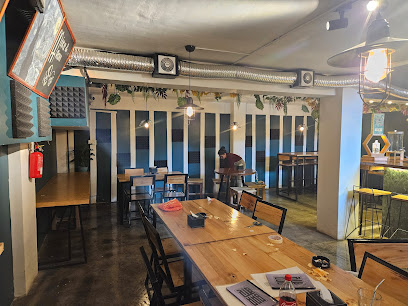
Aama ko bhathi
Discover the vibrant nightlife of Lalitpur at Aama ko bhathi, a cozy bar offering local brews and a welcoming atmosphere.

Nepali Ghar Restaurant & Bar
Delve into the heart of Nepali culture with authentic cuisine and refreshing drinks at Nepali Ghar Restaurant & Bar in Lalitpur.
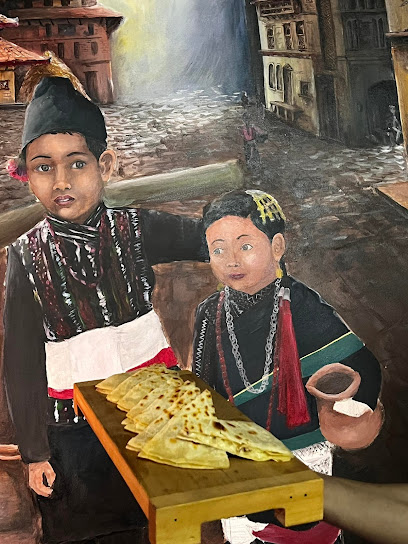
Local Phrases
-
- Helloनमस्कार
[namaskāra] - Goodbyeफेरी भेटौं
[pherī bheṭauṁ] - Yesहामी
[hāmī] - Noहोइन
[ho'in] - Please/You're welcomeकृपया
[kṛipayā] - Thank youधन्यवाद
[dhanyavāda] - Excuse me/Sorryमाफ गर्नुहोस्
[māpha garnuhōs] - How are you?तिमीलाई कस्तो छ?
[timīlā'ī kastō cha?] - Fine. And you?राम्रो। तिमीलाई?
[rāmrō। timīlā'ī?] - Do you speak English?तिमी अंग्रेजी बोल्छौ?
[timī aṅgrējī bōlchau?] - I don't understandम बुझ्दैन
[ma bujhdain]
- Helloनमस्कार
-
- I'd like to see the menu, pleaseकृपया मेनु हेर्न चाहन्छु
[kṛipayā mēnu hērn cāhanchu] - I don't eat meatम मासु खाने गर्न
[ma māsu khānē garana] - Cheers!चियर्स!
[ciyarsa] - I would like to pay, pleaseकृपया भुक्तानी गर्न चाहन्छु
[kṛipayā bhuktānī garana cāhanchu]
- I'd like to see the menu, pleaseकृपया मेनु हेर्न चाहन्छु
-
- Help!मदत!
[madata!] - Go away!दूर हिजौ!
[dūra hijau!] - Call the Police!प्रहरीलाई बोलाउनुहोस्!
[praharīlā'ī bōlā'unuhōs] - Call a doctor!डाक्टरलाई बोलाउनुहोस्!
[ḍākṭaralā'ī bōlā'unuhōs] - I'm lostम गुम्नु भयो
[ma gumnubhayo] - I'm illमलाई बिरामी छ
[malā'ī birāmī cha]
- Help!मदत!
-
- I'd like to buy...म खरीद गर्न चाहन्छु...
[ma kharīda garana cāhanchu...] - I'm just lookingम सिर्जना गर्दैछु
[ma sirjanā gardaicu] - How much is it?यो कति छ?
[yō kati cha?] - That's too expensiveत्यो धेरै महँगो छ
[tyō dhērai mahangō cha] - Can you lower the price?के तपाईं मूल्य हाल्न सक्नुहुन्छ?
[kē tapā'ī mūlya hālna saknuhunca?]
- I'd like to buy...म खरीद गर्न चाहन्छु...
-
- What time is it?समय कति बज्यो?
[samaya kati bajyō?] - It's one o'clockएक बज्यो
[ēka bajyō] - Half past (10)दस बजे अर्धवात
[das bajē ardhavāta] - Morningबिहान
[bihāna] - Afternoonदिउँसो
[di'ũsō] - Eveningसाँझ
[sā̃jha] - Yesterdayहिजो
[hijō] - Todayआज
[āja] - Tomorrowभोलि
[bhōli] - 1एक
[ēka] - 2दुई
[du'ī] - 3तीन
[tīna] - 4चार
[cāra] - 5पाँच
[pā̃ca] - 6छय
[chhay] - 7सात
[sāta] - 8आठ
[āṭha] - 9नौ
[nau] - 10दस
[das]
- What time is it?समय कति बज्यो?
-
- Where's a/the...?...कहाँ छ?
[...kahām̐ cha?] - What's the address?ठेगाना के हो?
[ṭhēgānā kē hō?] - Can you show me (on the map)?के तपाईं मलाई देखाउन सक्नुहुन्छ (नक्सामा)?
[kē tapā'ī mala'i dēkhā'un saknuhunca (naksāmā)?] - When's the next (bus)?अर्को (बस) कहिले छ?
[arkō (basa) kahilē cha?] - A ticket (to ....)एक टिकट (....मा)
[ēka ṭikata (....mā)]
- Where's a/the...?...कहाँ छ?
History of Mahabouddha Temple
-
Mahabouddha Temple, located in the heart of Patan, was built in the 14th century during the reign of King Jayasthiti Malla. This temple is dedicated to the Buddhist deity, Buddha Shakyamuni, and is renowned for its intricate terracotta tiles depicting various deities and scenes from Buddhist lore. The construction of Mahabouddha Temple marked a significant development in the architectural style of the region, showcasing the fusion of Newar craftsmanship with the religious fervor of the time.
-
The Mahabouddha Temple is not just an architectural marvel; it also serves as a vital cultural hub for the Newar community in Patan. The temple has been a site of pilgrimage and worship for centuries, embodying the spiritual and cultural traditions of the Newar people. Festivals such as Buddha Jayanti are celebrated here, attracting devotees and showcasing traditional rituals, music, and dance, thus reinforcing the temple's role in the community.
-
The Malla kings, who ruled during the medieval period, played a crucial role in the development and patronage of Mahabouddha Temple. Under their reign, numerous Buddhist structures were built, and the temple became a symbol of the Malla dynasty's commitment to art, religion, and cultural heritage. The temple's architecture reflects the grandeur of the Malla period and serves as a testament to their contributions to the religious landscape of Patan.
-
In the aftermath of the devastating earthquake in 2015, Mahabouddha Temple suffered considerable damage. However, restoration efforts led by local craftsmen and international organizations have been crucial in preserving this historical site. These initiatives highlight the importance of Mahabouddha Temple not only as a religious site but also as a key element of Patan's cultural identity and heritage, ensuring its continuity for future generations.
-
Today, Mahabouddha Temple stands as a vibrant center for Buddhist practice and a popular tourist destination in Patan. It attracts visitors from around the globe who come to admire its unique architecture and participate in the spiritual activities held within its confines. The temple's significance has transcended its original religious purpose, becoming a symbol of Patan's rich cultural tapestry and the resilience of its community.
Mahabouddha Temple Essentials
-
Mahabouddha Temple is located in the heart of Patan, making it easily accessible from various neighborhoods. If you're coming from Durbar Square, it's a short 15-minute walk. Alternatively, you can take a local taxi or a rickshaw, which are readily available and provide a convenient way to navigate the narrow streets of Patan. For those coming from Kathmandu, public buses operate frequently to Patan, and you can disembark at the nearest stop and walk or take a taxi to the temple.
-
Mahabouddha Temple is in a walkable area, and many of the attractions nearby can be explored on foot. Local bicycles can be rented for a small fee, allowing you to traverse the charming streets at your own pace. Taxis are available for longer distances, and you can also find local rickshaws, which can be a fun way to experience the area. Public buses are less common here, as most visitors prefer the convenience of taxis or walking.
-
Mahabouddha Temple is generally safe for tourists. However, like any urban area, it's important to remain vigilant. Avoid walking alone at night in less crowded areas, particularly around the outskirts of Patan. There have been reports of petty crimes, such as pickpocketing, especially in crowded markets. Always keep your belongings secure and be cautious of overly friendly strangers offering assistance.
-
In case of an emergency, dial 100 for police assistance and 101 for fire services. For medical emergencies, it's advisable to seek help from a local hospital or clinic. Patan has several healthcare facilities, including the Patan Hospital. Ensure you have comprehensive travel insurance that covers emergencies. If you need assistance, local residents are often willing to help direct you to the nearest facility.
-
Fashion: Do dress modestly, especially when visiting the temple; women should cover their shoulders and knees. Religion: Do respect the sacredness of the temple; photography may be restricted in certain areas. Public Transport: Do be courteous to fellow passengers; don't engage in loud conversations. Greetings: Do greet locals with a polite 'Namaste' and a slight bow; don't use overly casual greetings. Eating & Drinking: Do try local snacks from nearby vendors; don't eat or drink inside the temple premises.
-
To experience Mahabouddha Temple like a local, visit the temple during early morning or late afternoon to enjoy a quieter atmosphere and witness local rituals. Engage with the local community by participating in festivals or cultural events, which are common in the area. Try to sample street food from nearby vendors for an authentic taste of Nepali cuisine. Additionally, consider visiting the nearby pottery square, where you can observe local artisans at work.
Nearby Cities to Mahabouddha Temple
-
Things To Do in Kathmandu
-
Things To Do in Bhaktapur
-
Things To Do in Nagarkot
-
Things To Do in Gorkha
-
Things To Do in Bandipur
-
Things To Do in Chitwan
-
Things To Do in Namche Bazaar
-
Things To Do in Pokhara
-
Things To Do in Patna
-
Things To Do in Lumbini
-
Things To Do in Darjeeling
-
Things To Do in Siliguri
-
Things To Do in Gangtok
-
Things To Do in Varanasi
-
Things To Do in Paro







